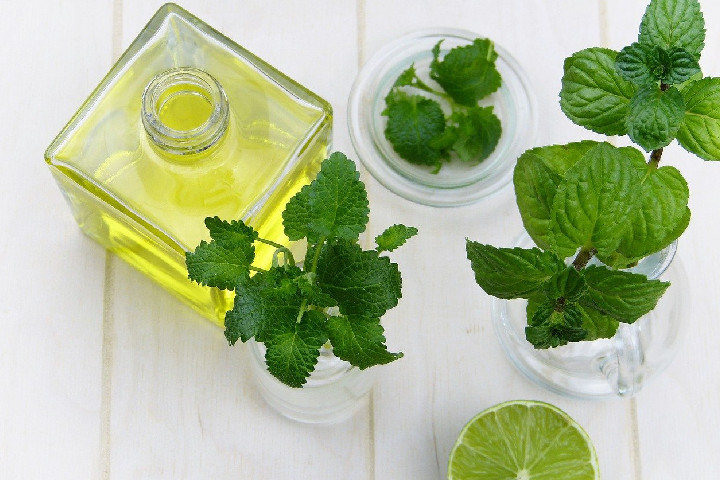Halitosis is a common problem. More than half of healthy people can present it at some point. Knowing the causes and following a series of recommendations, we can avoid it.
The leading cause of halitosis – between 85 and 90% of cases – is poor oral hygiene or certain diseases of the gums or teeth, such as cavities. However, other illnesses can make your mouth not smell as good as they should.
1. Causes Of Bad Breath
- Poor oral hygiene
- Gum diseases
- Pharyngitis
- Tonsillitis
- Sinusitis
- Gastric ulcer
- Pyloric stenosis
- Hia antics hernia
- Fasting or very restrictive diets
- Certain foods such as onion or garlic
Medications. Antihistamines, anxiolytics, or antidepressants.
Passing bad breath It disappears or is easy to correct, but if it becomes chronic we recommend that you go to your family doctor. There are natural remedies and habits that can help us combat it and regain lost freshness.
2. How To Brush Your Teeth To Avoid Bad Breath
If We Do Not Perform Proper Dental Hygiene, The Food Remains Remain Between The Teeth, Around The Gum And Above The Tongue, Rot And Increase The Presence Of Bacteria That Cause The Bad Odor.
Daily brushing. It is necessary to brush at least twice a day, using chlorophyll toothpaste, if possible. Flossing once a day is to clean between your teeth.
Gargle with colutory. In this sense, a few drops of oxygenated water added to the water or a teaspoon of sodium bicarbonate may suffice.
Clean your tongue. With the brush without cream or a special one, a surface layer rich in bacteria and volatile acid compounds that cause an unpleasant odor must be removed. Take out the tongue as much as you can, as the back is where there is the highest accumulation of residues. Hold your breath to avoid nausea.
In the morning, the breath usually smells worse due to the activity of bacteria in the mouth.
3. Natural Remedies Against Bad Breath
Daniel Bonet, physician specialized in Homeopathy, and Natural Therapies gives us a series of home remedies to end halitosis.
Medicinal plants. Mint, eucalyptus, thyme, sage, rosemary, etc., can help us fight halitosis. You can make an infusion with one teaspoon per cup of water, boiling for 15 minutes.

Digestive problems. Cardamom seeds can be chewed after meals by cleaning the mouth and removing the smell of other foods. Or take infusions of digestive plants such as fennel, pollen, anise, chamomile.
To protect the stomach. For example, if you’re taking medication, boil a teaspoon of fenugreek or fenugreek seeds in a cup of water for 5 minutes. Cover and leave to cool, drinking a cup after meals.
To disinfect the mouth. Put a tablespoon of mauve flowers in a cup of boiling water. When it’s cold, you add a few drops of lemon juice, and it’s ready to rinse.
4. Diet To Have Good Breath
Balance the diet. If the food is rich in protein (meat, fish) but low in carbohydrates (bread, pasta, potato), the body must get energy through fat (ketosis), which can cause bad breath.
Between 3 and 5 meals a day. Avoid staying for a long time—more than 3 or 4 hours—without eating or drinking because it can generate halitosis.
Fruit between meals. Eating it between hours facilitates the chewing process and increases salivation, all of which help eliminate bacteria and other substances that cause halitosis.
Food to avoid. The sulfurs (garlic, onion, cabbage, etc.), sausages, and desserts or sweets that stick to the teeth.
Fasting. Eating apple or peach first thing often helps eliminate bad breath.
Drink water. It promotes the secretion of saliva, which contains enzymes that fight bacteria guilty of odor.
5. Food For Halitosis.
Certain herbs and spices found in any kitchen naturally help you have good breath.
Cloves and seeds. Like fennel, dill or anise helps, if you chew them, to keep a fresh breath at the end of a meal especially high in fat

Parsley. It is rich in chlorophyll and essential oils, which refreshes the breath. You can chew a twig after eating or boil two cups of water with several sprigs of parsley and two cloves of spice, filter, and use as a rinse.
Carrot. Eating it raw in salads or between hours strengthens the gums and cleanses the mouth.
Citrus. Orange, lemon, grapefruit, or tangerine juices are recommended since the citric acid they contain stimulates salivation and, consequently, cleanses the residues’ mouth.

